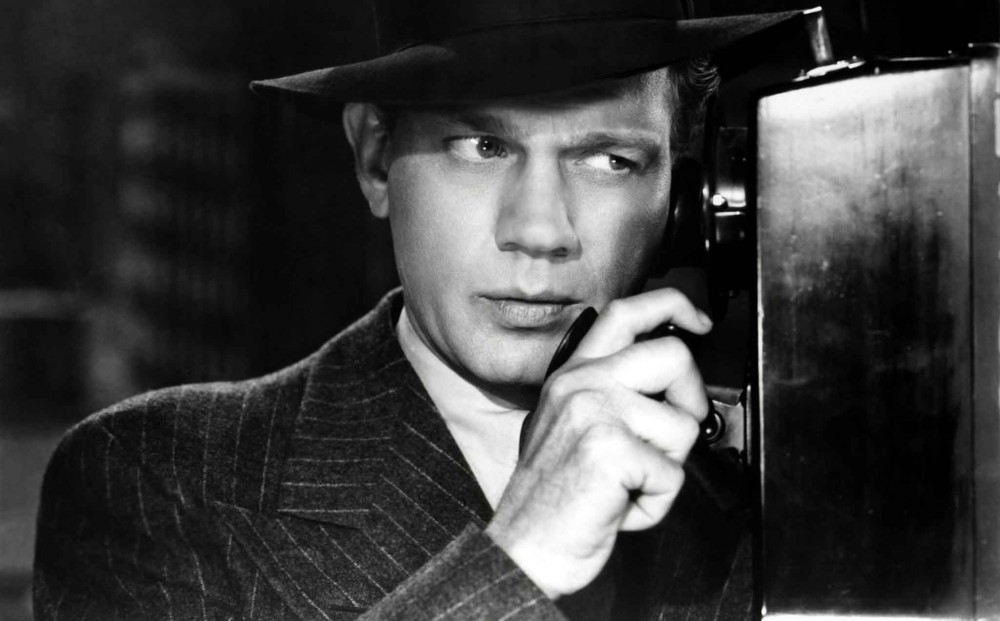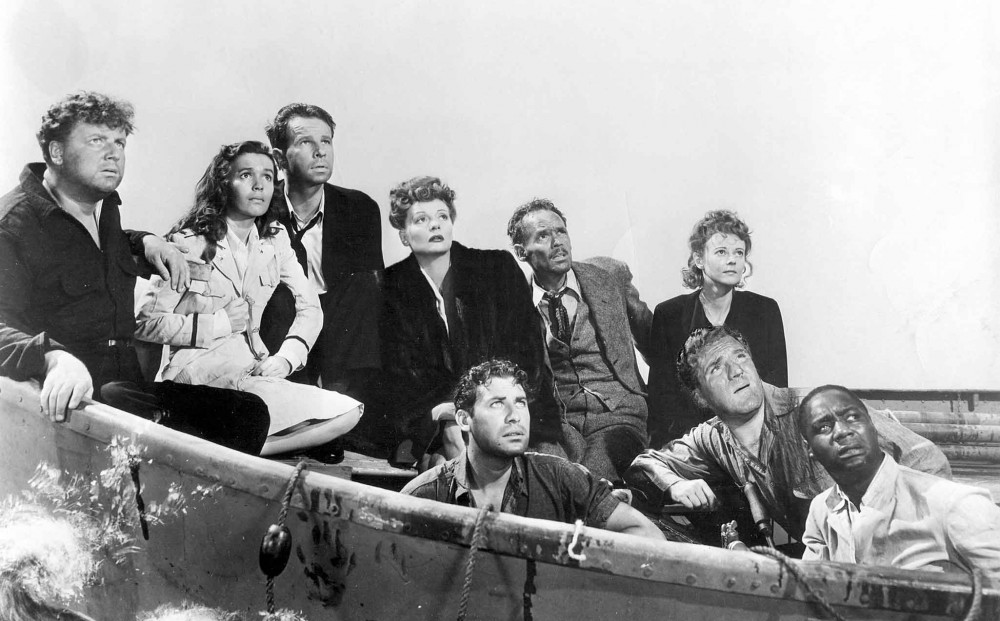LIFEBOAT & SHADOW OF A DOUBT
Sunday, August 27
LIFEBOAT
12:30 4:35 8:40
SHADOW OF A DOUBT
2:25 6:30
LIFEBOAT
Directed by Alfred Hitchcock
Starring Tallulah Bankhead & John Hodiak
(1944) Grand Hotel in miniature, as after a sinking at sea, columnist Tallulah Bankhead, hunky seaman John Hodiak, right-wing mogul Henry Hull, Brooklyn mug William Bendix, et al. – plus U-boat survivor Walter Slezak – find themselves in the eponymous vessel. Music-less tour-de-force for Hitchcock’s camera, never moving outside the boat. Original screenplay by John Steinbeck, with Hitchcock’s most challenging cameo. 35mm. Approx. 96 min.
12:30, 4:35, 8:40
“That old master of screen melodrama, Alfred Hitchcock, and Writer John Steinbeck have combined their distinctive talents in a tremendously provocative film.”
– Bosley Crowther, The New York Times
SHADOW OF A DOUBT
Directed by Alfred Hitchcock
Starring Joseph Cotton & Teresa Wright
(1943) As wealthy widows keep disappearing, lovable Joseph Cotten visits niece Theresa Wright in her very average middle American town. But when he starts whistling “The Merry Widow Waltz”… Hitchcock’s personal favorite, this is perhaps his ultimate evocation of evil nestling among the pleasantly mundane, with authentic Americana provided by Thornton Wilder (Our Town) and Sally Benson (Meet Me in St. Louis). 35mm. Approx. 108 min.
2:25, 6:30
“HITCHCOCK'S FIRST INDISPUTABLE MASTERPIECE. Hitchcock's discovery of darkness within the heart of small-town America remains one of his most harrowing films, a peek behind the facade of security that reveals loneliness, despair, and death.”
– Dave Kehr, Chicago Reader
“The movie is the most “psychological” of Hitchcock’s films, and the one with the clearest and most explicit exposition of evil, yet the director’s attitude is profoundly ambivalent. Goodness can be terrifying, too, and its collusion with evil is part of the movie’s enduring fascination.”
– David Denby
“Peels back the welcoming warmth and sincere innocence of small-town life to reveal the gullibility and the naïveté underneath; it's a fiction about the perpetuation of fictions.”
– Richard Brody, The New Yorker


